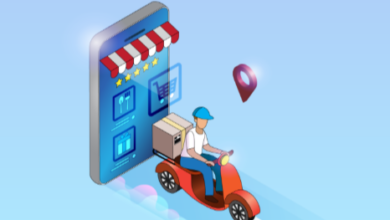How NDIS Supports Individuals with Disabilities to Learn Driving

The NDIS is transformative for people who have disabilities; it makes them lead an independent and more fulfilling life. Among all the important aspects of individual independence, driving happens to be one of the vital components. Mastering the act of driving will open all the more avenues for freedom, increase one’s chances at jobs, and increase the person’s autonomy as well. The NDIS allows participants to access NDIS driving lessons through targeted funding and access to specialised programs, thus ensuring that participants are well-equipped to learn this valuable skill.
Driving as a Gateway to Independence
Driving for people with disabilities is not just a way of transportation; it is freedom and independence over one’s life. Driving allows participants to:
- Travel to work or school on their own.
- Attend medical appointments or social events without relying on others.
- Access opportunities in areas not serviced by public transport.
The NDIS acknowledges that driving improves quality of life and supports participants to achieve this.
See also: How to Find the Perfect Fit: A Guide to Different Denim Styles
NDIS Driving Lessons: What Are They?
NDIS driving lessons are specifically designed for participants with disabilities and cater to the needs of the individual. Trained teachers, with an expertise in teaching a person of varying abilities, guide the student. Important aspects of such lessons are as follows:
Individualised teaching – Programs that accommodate specific challenges in the life of the participant, like mobility, sensory, or cognitive disabilities.
Adaptive Vehicles: Vehicles fitted with adaptations such as hand controls, steering aids, or left-foot accelerators in which participants can learn both safely and comfortably.
Adaptive Learning Pace: The instructor’s teaching pace is tailored to the participant’s confidence and ability.
Through the NDIS, participants can access funding to assist with these specific adapted driving lessons, so everyone gets an equal opportunity.
NDIS Funding for Driving Lessons
For people who require driving to get out and about in order to achieve their goals, a participant can have the expense of driving lessons covered as part of their NDIS plan. This is how it works:
Assessment of Needs: During the process of planning for an NDIS, participants and their planners discuss how driving fits with their goals, such as gaining independence or pursuing employment.
Inclusion in Plan: In case the participant gets approval, NDIS driving lessons funding would fall under the category of skills development under the capacity building section.
Access to Providers: Participants can access any of the registered NDIS providers that specialise in teaching participants how to drive.
One must ensure that the NDIS plan for the participant clearly states that driving is a goal for which the participant is being funded.
NDIS Driving Support to Overcome Challenges
The NDIS also enables the participants to counter other obstacles they may come across when learning to drive, including:
Physical Impairment: With assistive vehicles and encouraging coaches, participants with mobility difficulties can now learn to drive.
Sensory Impairment: Participants with problems of hearing or seeing could also learn to drive aided by tools such as audio feedback, improved mirrors, or any other assistive gadgets.
Cognitive Disability: The lessons are flexible so that participants who may take some time or require alternative teaching ways to understand driving concepts can be catered to.
By facing these head-on, the NDIS ensures that learning to drive can be achieved by participants of any circumstances.
Specialist Driving Instructors Role
Driving instructors with NDIS not only are skilled to teach mechanics of driving but are also trained to support a person with a disability. The roles they play are:
- They carry out assessments on what is specific for the participant.
- Teach participants on the use of adaptive controls or any other form of modification.
- Build confidence and relieve anxiety for the first-time driver.
- Helping participants in preparation for the driving test, so they can pass legal requirements.
In a supportive and nonsympathetic environment, participants have an easier, less tedious learning process.
The Broader Impact of Driving on Participants’ Lives
To the disability user, the possibility of driving has positive ripple effects in his or her life, among them:
Socio-economic: A greater possibility to get jobs or engagements that require commuting to and fro with clients.
Improved Social Inclusion: Driving enables people to go to friends, attend community functions, and decrease social exclusion.
Increased Confidence: Successful accomplishment of a difficult activity like driving builds self-confidence and enables participants to seek more challenging activities.
The funding of NDIS driving lessons in Melbourne supports these general improvements in the lives of participants and helps participants reach their full potential.
How to Get NDIS Driving Lessons Added to Your Plan
In order to have driving lessons added to an NDIS plan, participants should:
Discuss Driving Goals: Clearly outline during the planning meeting how driving will support their independence and goals.
Get an Assessment: Some participants may need a professional assessment to determine eligibility and identify necessary vehicle modifications.
Choose a Provider: Select a driving instructor or school that is registered with the NDIS and specialises in adaptive driving.
Record progress: Report the milestones made through the lessons to NDIS to prove that it is worth supporting.
Final thoughts
The NDIS has been of immense value in supporting people with disabilities as they learn to drive, giving them independence and more access to opportunities. This allows them to enjoy life much better. NDIS driving lessons ensure learners receive specific instruction, adaptable tools, and even financing in achieving this great objective.
Driving is not a skill, but it is a route to freedom, confidence, and empowerment. With NDIS on their side, people with disabilities can walk the road forward, knowing they have all the equipment and support to help them navigate it.






